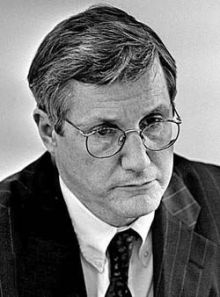On rare occasions in politics, but more often than we might think, there are two contemporaneous and completely contradictory interpretations of what actually happened in a major political event. (The most famous recent example of a contradictory outcome is the 2000 American Presidential Elections between George Bush and Al Gore where both believed they had won.) Oftentimes we must wait for days or sometimes for historians to tell us what happened and what it meant to us. The Bucharest Summit is one of these perplexing and contradictory events, which is still in need of interpretation, particularly in its effect on Ukraine.
After the dinner of the Presidents in Bucharest last Wednesday night, the European futures of Ukraine and Georgia had never looked bleaker. Most activists and experts were headed to the bar where their comments about the performance of the NATO powers were unprintable for the rest of what will be remembered as a thoroughly depressing evening.
But by Thursday morning, a rejection of Ukraine and Georgia for MAP had been transformed into a guarantee of eventual NATO membership. The rejection of MAP softened into a short delay just to allow for further review and approval would be possible as early as this December.
President Sarkozy was the first to characterize the language of the Summit communique language as “more than MAP.” But even the slightly hung-over depressives from the previous evening realized that Ukraine and Georgia had officially received a membership perspective from a European institution for the first time in their modern history. They were ecstatic.
What does this all mean for Ukraine? Well, it means that it was not as bad as it looked at first and it is probably not as good as it looks for Ukraine right now. But, the granting of perspective for Ukraine certainly presents exciting possibilities and options for Ukrainian policy which need to be acted on immediately.
The first possibility, according to the official communique, is the possibility of a positive decision on MAP at the NATO Foreign Minister’s meeting in December, if the remaining issues have been resolved. The United States, Canada and all of Central and Eastern Europe did not think that there were issues remaining which prevented Ukraine for entering MAP at Bucharest and do not now after the Summit is over.
Other countries, notably Germany, may try to insist that a majority of Ukrainians must support full NATO membership before entering MAP and that Georgia must resolve all “frozen conflicts” on its territory. In short, the proponents of delay may try to link MAP invitation to the successful completion of all the labors of Hercules.
Part of the challenge of both Ukraine and the United States will be to assure both Germany and France that the Government of Ukraine is growing stronger and more capable, that the political climate is growing milder, and that a broad majority of Ukrainian support both these positive developments. I doubt that Angela Merkel spends much time looking at polling data from Ukraine. But, I do think that she is willing to use the weakness of public support for NATO as a tool to make a more general criticism of the volatility and unpredictability of Ukraine politics. Similarly, the Chancellor is using the frozen conflicts in South Ossetia and Abkhazia to make the point that she regards Georgian-Russian relations as unstable and potentially dangerous.
Now there is a lot to be said about how wrongheaded are the beliefs of Chancellor Merkel about the best way to encourage political development and stability in Europe’s East. Briefly, delaying Ukraine and Georgia and serving to extend their isolation from European institutions is about as stupid and self-defeating a policy as one could imagine for Germany to pursue. Nevertheless, these are the beliefs of Germany, and they are shared a number of other Western European countries. It would be better for Ukraine to accept that Merkel has these concerns and Ukraine will have to address these issues to remove the last obstacle to MAP.
To a certain extent the passage of time will serve to strengthen the Ukrainian case. By December the Kosovo crisis which served to unnerve the Western Europeans and weaken support for Ukraine and Georgia will be further behind us. It will also be impressive and unusual if Ukraine is able to articulate the same aspirations in December that its leaders expressed in Bucharest. This would be consistency. It would also be impressive if Members of Parliament and ordinary voters evinced a greater understanding of what the Membership Action Plan is not.
Perhaps, the most impressive development would be for Ukraine’s leaders to make clear to the NATO leaders and to their public that they recognize that the completion of the MAP could take a decade and that Ukraine might not take up a final political decision on actual membership until almost 2015-2020. No one really knows how long it takes for an individual country to prepare for accession, but it would show admirable political maturity to make clear that this is recognized by all political parties in Ukraine.
Finally, I suspect that the NATO leaders are getting tired of seeing NATO used as a football in every political contest and ordinary dogfight in Ukraine. It is time to depoliticize the relationships which Ukraine must maintain with European institutions.
If these things can be achieved between now and December, not only will the few remaining skeptics within NATO be assured, but I believe the NATO perspective which Ukraine and Georgia achieved will begin to take on a broader European interpretation. With the achievement of MAP, I would expect free trade discussions with the European Union to accelerate and widen in scope. And then, perhaps, the experts and analysts who alternated between despair and elation at the NATO Summit, might begin to wonder if an EU perspective is not far in Ukraine’s future.







